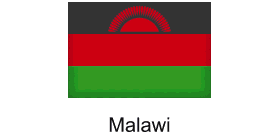 Malawi’s Tourism Transformation: New Authority and College Signal Growth
Malawi’s Tourism Transformation: New Authority and College Signal Growth
Malawi has ignited its tourism sector with a groundbreaking new law, establishing the Malawi Tourism Authority (MTA) and the Malawi College of Tourism (MCT). Announced by Tourism Minister Vera Kamtukule, this initiative marks a pivotal moment for the nation and presents exciting prospects for travel professionals across Africa.
This bold move signifies Malawi’s commitment to modernizing its tourism landscape, creating a more structured and professional environment. The MTA will serve as a regulatory body, setting industry standards and promoting Malawi as a prime destination. Simultaneously, the MCT will nurture a skilled workforce, equipping professionals with the expertise to elevate Malawi’s tourism offerings.
For African travel agents, this translates to a more reliable and competitive Malawian tourism product. The MTA’s focus on standardization ensures quality service and sustainable practices, while the MCT’s training programs cultivate a workforce capable of delivering world-class experiences. This synergy creates a more attractive and dependable destination for discerning travelers.
Malawi, blessed with natural wonders like Lake Malawi and Mount Mulanje, holds immense untapped potential. However, challenges such as infrastructure limitations and marketing gaps have hindered its growth. The new law addresses these issues head-on, paving the way for a more robust and sustainable tourism sector.
Historically, Malawi’s tourism growth has been modest, averaging 1.9% annually before the COVID-19 pandemic. While the sector is rebounding strongly, with a 35.8% average growth rate in recent years, it has yet to reach its pre-pandemic peak of 883,000 tourist arrivals and USD 220 million in revenue. The new framework aims to propel Malawi beyond these benchmarks, unlocking its full tourism potential.
The MTA, drawing inspiration from successful models in Kenya, Rwanda, and South Africa, will focus on destination marketing, sustainable practices, and community involvement. This strategic approach, mirroring best practices across the continent, positions Malawi for accelerated growth and enhanced competitiveness within the African tourism market.
The MCT, by providing specialized training, addresses the critical need for skilled professionals. This investment in human capital is essential for delivering high-quality services and meeting the evolving demands of today’s travelers. The college’s curriculum will align with international standards, ensuring Malawian tourism professionals are equipped to compete on a global scale.
Malawi’s current market share within regional tourism stands at approximately 11%, trailing behind neighbors like Tanzania (26%) and Zimbabwe (23%). However, the new framework, coupled with projected growth scenarios of 10-20% annually, positions Malawi for a significant leap forward. This presents a unique opportunity for travel agents to capitalize on Malawi’s emerging prominence.
Minister Kamtukule’s vision extends beyond simply increasing tourist numbers. She emphasizes the importance of sustainable and inclusive growth, ensuring that local communities benefit from tourism development. This focus on responsible tourism aligns with global trends and appeals to an increasingly conscious traveler.
Malawi’s tourism transformation is not just a national endeavor; it’s a story of African resilience and innovation. By embracing change and investing in its future, Malawi is creating a more vibrant and sustainable tourism sector. For African travel agents, this presents a compelling opportunity to partner with a destination on the rise, offering clients an authentic and enriching African experience.
